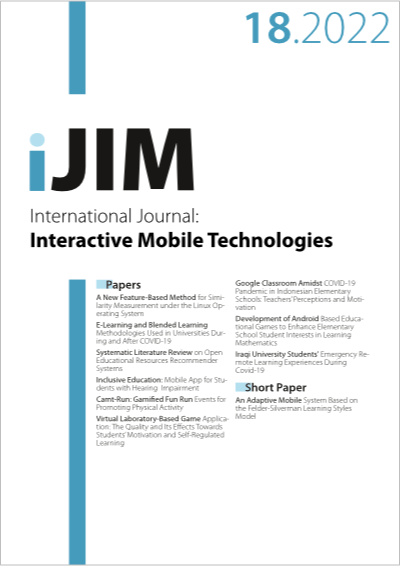An Adaptive Mobile System Based on the Felder-Silverman Learning Styles Model
DOI:
https://doi.org/10.3991/ijim.v16i18.34127Keywords:
Adaptive learning system, Context awareness learning, Mobile learning, Learning Styles, Bayesian Network.Abstract
Mobile technologies are invading everyday life. Their use has extended to areas and aspects of life that we did not necessarily imagine before. That being said, all efforts have been pooled recently in order to extend its use to educational applications and above all to exploit its potential in order to guarantee the most optimal learning process possible. Learners tend to consult the teaching content in their mobile devices even if the learning objects are not necessarily designed for this specific environment. So it has become essential to adapt to this rapid technological evolution and to design learning systems that take into consideration this new dimension, hence the need to add this new pole in adaptive learning systems. This paper introduces architecture of an adaptive learning system designed for mobile devices. The system which is an extension of some previous works in the adaptive learning systems area is based on the learning styles of Felder-Silverman and an adaptive model that provides the learning objects based on the recommendations of a specific instructional model and using mainly a Bayesian Network. The developed architecture takes into consideration the context constraint related to the technical part of the mobile device which leads ultimately to a novel adaptive learning system designed exclusively to run in a mobile environment.
Downloads
Published
How to Cite
Issue
Section
License
Copyright (c) 2022 yassine zaoui seghroucheni

This work is licensed under a Creative Commons Attribution 4.0 International License.



